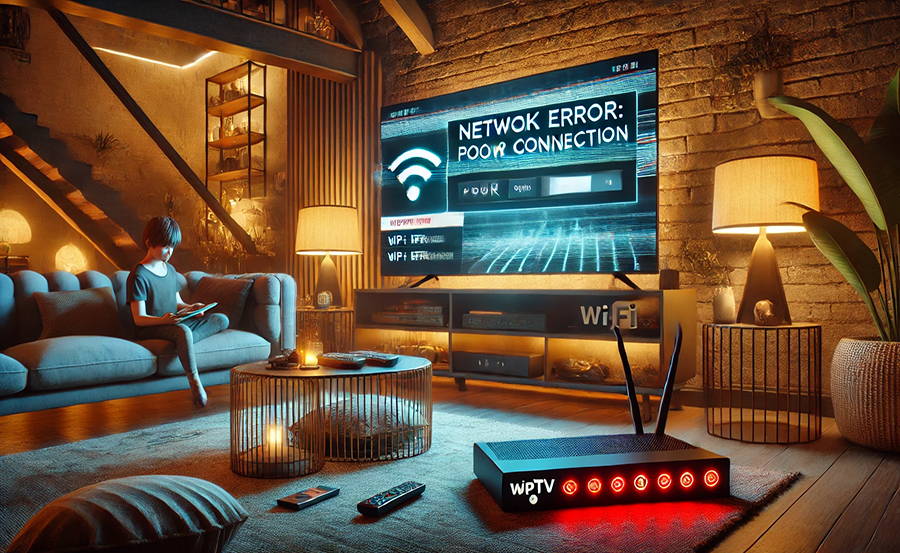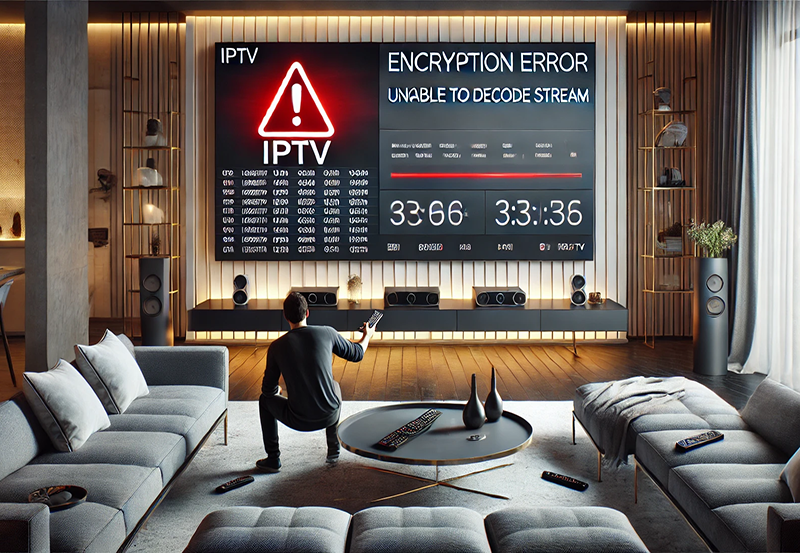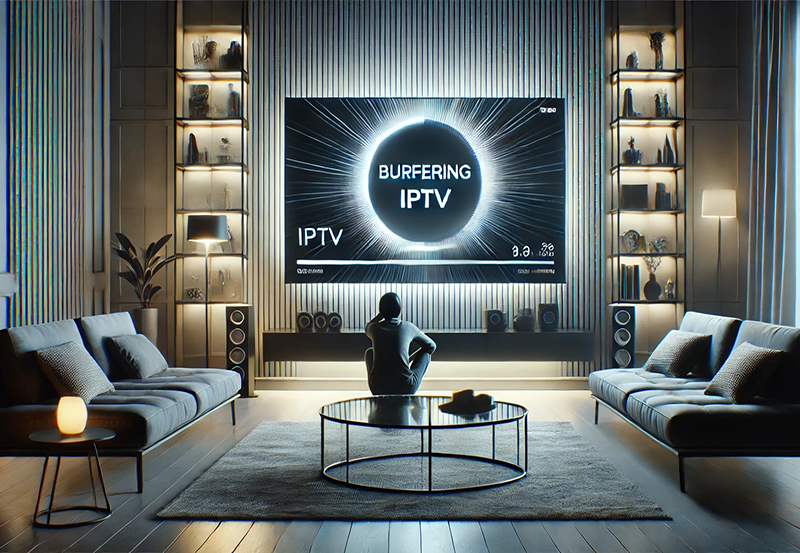As we embrace the ever-evolving world of internet television, understanding the intricacies of how network bandwidth affects IPTV (Internet Protocol Television) lag becomes crucial. The promise of effortlessly streaming your favorite shows from Affordable IPTV providers and enjoying the Best IPTV channels comes with challenges that many viewers encounter—lag being a notable annoyance. In this article, we’ll journey through the role of bandwidth in IPTV performance, aiming to deliver insights while considering the perspective of viewers.
Understanding Network Bandwidth
Before diving into technical nuances, let’s consider what network bandwidth actually denotes. Essentially, it’s the capacity of data that can be transmitted over a network at any given time. Think of it as a highway: the wider it is, the more traffic it can support without causing slowdowns. This attribute impacts how efficiently your IPTV service can deliver content.
Bandwidth is measured in Mbps (Megabits per second), indicating the volume of data transmitted every second. The higher the Mbps, the smoother your streaming experience is likely to be. However, several factors affect this, including network congestion and the quality of your connection.
The Impact of Bandwidth on IPTV
Bandwidth directly influences the quality of IPTV streaming. When offering Discover Superior IPTV Viewing experience, providers rely heavily on sustainable broadband capacity. Without sufficient bandwidth, users may experience buffering, lower resolution, or, at worst, complete service disruptions.
Typically, streaming standard definition IPTV requires around 3-4 Mbps. High-definition channels have heightened demands, needing at least 5-8 Mbps. For full HD, it’s closer to 10 Mbps and upwards, pushing bandwidth requirements even further. Therefore, knowing these metrics helps align expectations and network capabilities. Buy 1 Year IPTV and Enjoy Unlimited Content
Real-World Implications
One might wonder why lag occurs even when they subscribe to broadband plans that ostensibly cover these requirements. Real-world conditions such as peak-hour traffic can impact available bandwidth, leading to unexpected lag during crucial viewing moments.
Moreover, downtimes in server response from IPTV providers or bottlenecks can also exacerbate lag issues. This interplay between network conditions and service quality often dictate user experiences with their chosen IPTV channels.
Factors Contributing to Bandwidth Issues
- Network congestion and traffic spikes
- ISP throttling and poor data prioritization
- Outdated network hardware
- Multiple devices sharing bandwidth
Solutions and Recommendations
For anyone experiencing IPTV lag, several steps can be taken to mitigate these interruptions. Understanding these can significantly enhance your viewing experience, allowing you to enjoy IPTV affordably without undue disruptions.
Optimize Your Network Setup
Ensuring your home network is optimized for bandwidth distribution is essential. This involves:
- Upgrading router firmware
- Using wired connections when possible
- Positioning the router to minimize interference
Assess Your Subscription and Provider Offerings
Align your broadband plan with your streaming requirements. If your bandwidth doesn’t meet recommended speeds for IPTV, consider an upgrade. Furthermore, explore Affordable IPTV options that offer scalable solutions catering to varying bandwidth capacities.
Engage with your provider. They often have tools or suggestions that can minimize streaming issues. Customer service should assist in fine-tuning settings to enhance your IPTV quality.
Leveraging Innovative Solutions
Many modern IPTV providers offer compression technologies that can adapt to reduced bandwidth scenarios, maintaining a stable stream with minimal quality loss. Options like adaptive bitrate streaming play a key role in this adaptation.
Looking Beyond Lag
While bandwidth is a critical component of minimizing IPTV lag, it’s not the sole factor. Viewers should consider device capabilities, the IPTV platform’s architecture, and even personal settings that might impede streaming.
Choosing the Right IPTV Service
Selecting an IPTV service goes beyond just bandwidth considerations. Quality, availability of the Best IPTV channels, and user interface must all be part of the decision-making process. Engage with reviews and feedback from current users to find Discover Superior IPTV Viewing experiences.
This analytical approach not only enhances enjoyment but aligns expectations with what the service can realistically deliver.
The Role of the Viewer
Personal habits and settings can also affect streaming. Closing unnecessary applications, managing device metrics, and setting application priorities can complement overall bandwidth efforts.
Ultimately, the goal is a seamless streaming experience where technical hindrances take a back seat.
Conclusion: Navigating the Universe of IPTV
As viewers embark on their IPTV journeys, understanding the crucial role of network bandwidth is paramount. By aligning technical insights with practical applications, the quest towards a lag-free streaming experience becomes more attainable. Whether it’s through upgrading infrastructure or choosing the right provider, informed decisions herald the opportunity for better entertainment.
Armed with this knowledge, one can better navigate the complexities of IPTV, ensuring the technology translates to enjoyment rather than frustration.
Frequently Asked Questions

How can I measure my current bandwidth?
Measuring bandwidth can be done using online tools like Speedtest.net, which provide detailed insights into your current upload and download speeds. Regular testing is recommended to track your connectivity over time.
Does bandwidth affect IPTV only during peak hours?
While peak hours commonly exacerbate bandwidth issues, the unpredictability of network performance means issues can arise at any time. Proactivity in network management remains key.
Are wired connections better for IPTV streaming?
Yes, wired connections generally offer more stable and reliable connections for IPTV than wireless options, reducing interference and potential packet loss.
Can all IPTV providers mitigate lag efficiently?
No, not all services are equal. It’s crucial to research and choose providers with a strong track record of managing bandwidth effectively alongside other quality-of-service attributes.
Is it difficult to switch IPTV providers if I face persistent lag?
Switching IPTV providers can be straightforward, depending on your current contractual obligations. Many providers offer trial periods or no-contract options for increased flexibility.
Get Started with Lazy IPTV: Installation and Configuration Explained





